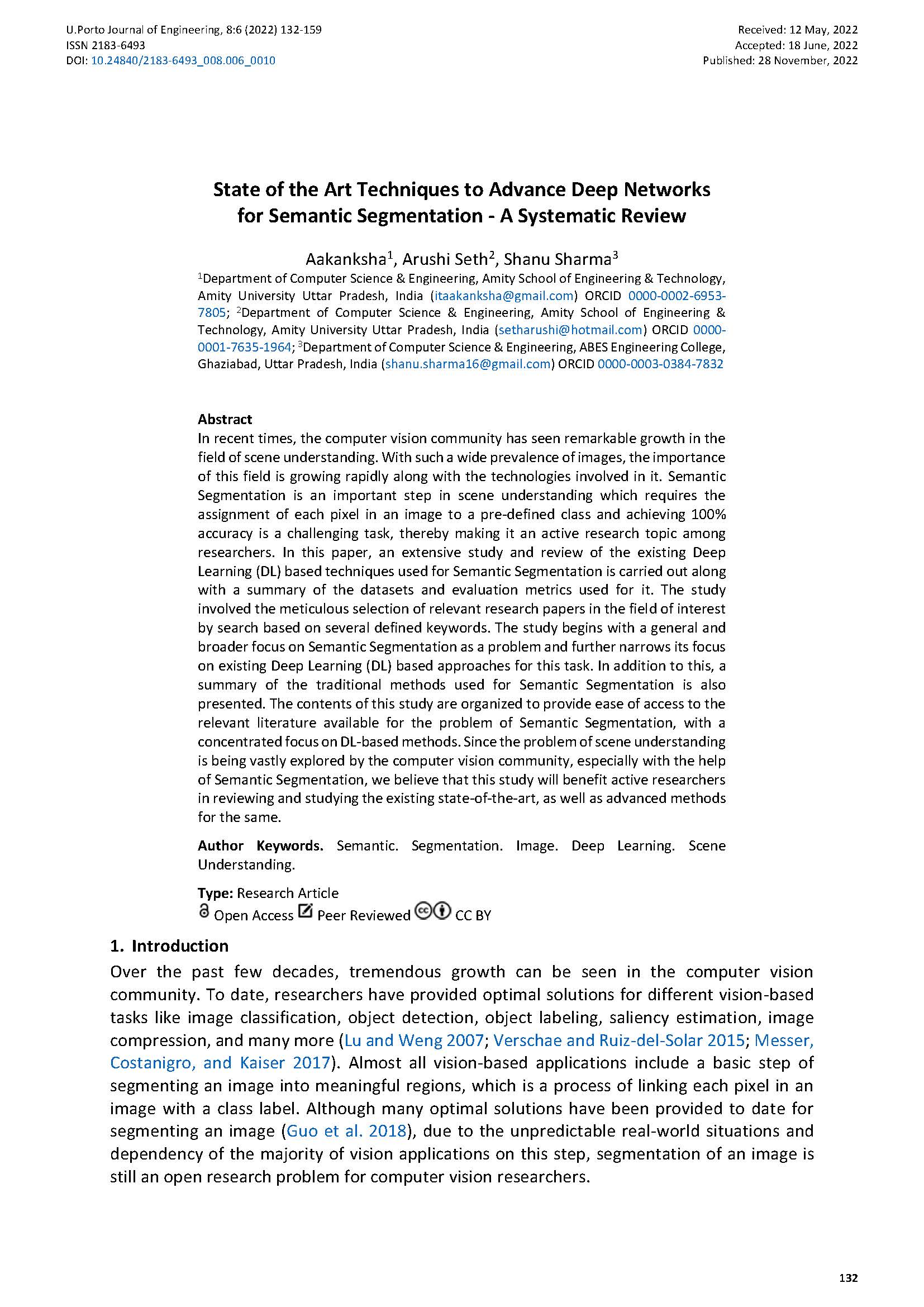State of the Art Techniques to Advance Deep Networks for Semantic Segmentation A Systematic Review
Main Article Content
Abstract
In recent times, the computer vision community has seen remarkable growth in the field of scene understanding. With such a wide prevalence of images, the importance of this field is growing rapidly along with the technologies involved in it. Semantic Segmentation is an important step in scene understanding which requires the assignment of each pixel in an image to a pre-defined class and achieving 100% accuracy is a challenging task, thereby making it an active research topic among researchers. In this paper, an extensive study and review of the existing Deep Learning (DL) based techniques used for Semantic Segmentation is carried out along with a summary of the datasets and evaluation metrics used for it. The study involved the meticulous selection of relevant research papers in the field of interest by search based on several defined keywords. The study begins with a general and broader focus on Semantic Segmentation as a problem and further narrows its focus on existing Deep Learning (DL) based approaches for this task. In addition to this, a summary of the traditional methods used for Semantic Segmentation is also presented. The contents of this study are organized to provide ease of access to the relevant literature available for the problem of Semantic Segmentation, with a concentrated focus on DL-based methods. Since the problem of scene understanding is being vastly explored by the computer vision community, especially with the help of Semantic Segmentation, we believe that this study will benefit active researchers in reviewing and studying the existing state-of-the-art, as well as advanced methods for the same.
Downloads
Article Details

This work is licensed under a Creative Commons Attribution 4.0 International License.
Authors who publish with this journal agree to the following terms:
- Authors retain copyright and grant the journal right of first publication with the work simultaneously licensed under a Creative Commons Attribution License that allows others to share the work with an acknowledgement of the work's authorship and initial publication in this journal.
- Authors grant the journal the rights to provide the article in all forms and media so the article can be used on the latest technology even after publication and ensure its long-term preservation.
- Authors are able to enter into separate, additional contractual arrangements for the non-exclusive distribution of the journal's published version of the work (e.g., post it to an institutional repository or publish it in a book), with an acknowledgement of its initial publication in this journal.
- Authors are permitted and encouraged to post their work online (e.g., in institutional repositories or on their website) prior to and during the submission process, as it can lead to productive exchanges, as well as earlier and greater citation of published work (See The Effect of Open Access).

